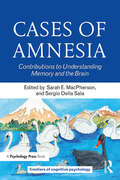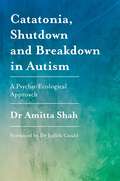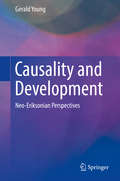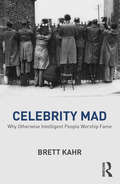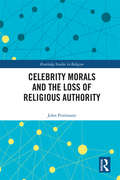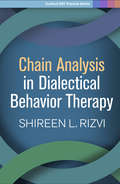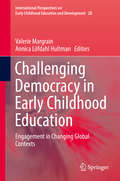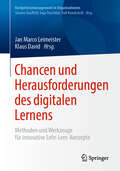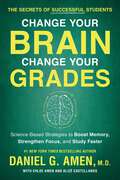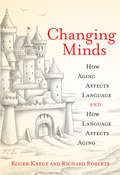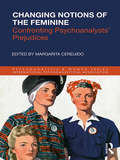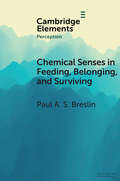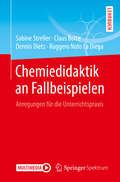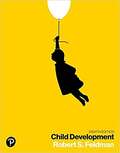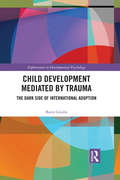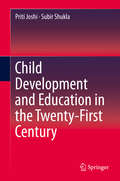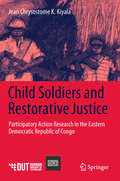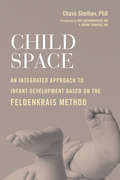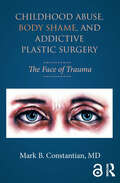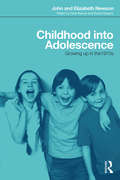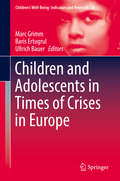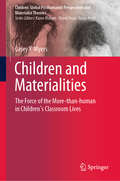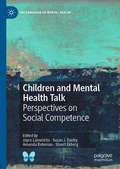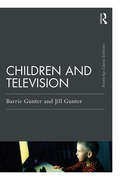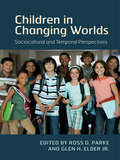- Table View
- List View
Cases of Amnesia: Contributions to Understanding Memory and the Brain (Frontiers of Cognitive Psychology)
by Sergio Della Sala Sarah E. MacPhersonIn all cognitive domains, neuropsychological research has advanced through the study of individual patients, and detailed observations and descriptions of their cases have been the backbone of medical and scientific reports for centuries. Cases of Amnesia describes some of the most important single case studies in the history of memory, as well as new case studies of amnesic patients. It highlights the major contribution they make to our understanding of human memory and neuropsychology. Written by world-leading researchers and considering the latest theory and techniques in the field, each case study provides a description of the patient's history, how their memory was assessed and what conclusions can be made in relation to cognitive models of memory. Edited by Sarah E. MacPherson and Sergio Della Sala, Cases of Amnesia is a must read for researchers and clinicians in neuropsychology, cognitive psychology and cognitive neuroscience.
Catatonia, Shutdown and Breakdown in Autism: A Psycho-Ecological Approach
by Amitta ShahThis ground-breaking book provides the first detailed clinical analysis of the various manifestations of catatonia, shutdown and breakdown in autistic individuals, with a new assessment framework (ACE-S) and guidance on intervention and management strategies using a psycho-ecological approach. Based on Dr Amitta Shah's lifetime of clinical experience in Autism Spectrum Disorders, and her research in collaboration with Dr Lorna Wing, this much needed book will be a valuable resource for professionals, autistic individuals and their families and carers.
Causality and Development: Neo-Eriksonian Perspectives
by Gerald YoungThe third book in Young’s unique trilogy on causality and development continues to locate and define the central role of causality in biopsychosocial and network/systems development, and as a unifying concept of psychology itself. As a way of discussing causality, in general, initially, the book focuses on the acquisition of handedness and hemispheric specialization in infancy and childhood, and their relations to the development of cognition, language, and emotion, in particular. The second part of the book elaborates an innovative 25-step Neo-Eriksonian model of development across the life course based on a Neo-Piagetian model covered in the previous books, completing a step-by-step account of development over the lifespan cognitively and socio-emotionally. It builds on the concept of neo-stage, which is network-based. From this conceptual synthesis, the author’s robust theory of development and causality identifies potential areas for psychological problems and pathology at each developmental step as well as science-based possibilities for their treatment. This elegant volume:Presents a clear picture of the development of handedness and laterality in more depth than has been attempted in the literature to date.Traces the causal concepts of activation-inhibition coordination and networking in the context of development.Describes in depth a novel 25-step Neo-Eriksonian lifespan model of development.Reviews relevant research on Piagetian and Eriksonian theories in development.Emphasizes the clinical utility of the described 25-step Neo-Eriksonian approach to lifespan development. A significant step in understanding this highly nuanced subject and synthesizing a broad knowledge base, Causality and Development will find an interested audience among developmental psychologists, mental health practitioners, academics, and researchers.chers.
Celebrity Mad: Why Otherwise Intelligent People Worship Fame
by Brett KahrThis short book by Professor Brett Kahr provides a psychoanalytic understanding of fame and celebrity in the early twenty-first century, building upon the bedrock foundations of the Freudian corpus. The book is divided into six chapters. Chapter One explores the psychology of the celebrity, questioning narcissistic and exhibitionist psychopathology, while Chapter Two examines the psychological state of those of who revel in the fame of others and in celebrity culture more broadly, and offers a discussion of the "Celebrity Worship Syndrome". Chapter Three provides a very brief history of the concept of celebrity itself, arguing that, contrary to popular opinion, the culture of celebrification cannot be blamed on twenty-first-century media moguls, but, rather, that such a preoccupation with famous personalities can be traced back to ancient times and demonstrates the need to broaden our analysis to include the role of deep, unconscious psychological forces. In Chapter Four, Kahr reviews some important theoretical concepts advanced by Freud and Winnicott, which provide an important foundation for the psychoanalytic study of fame, while Chapter Five provides a more comprehensive theory of the unconscious psychological roots of the need to worship fame and to seek it, drawing upon a multitude of sources, ranging from psychoanalytic theory and developmental psychological research, to film, archaeology, and, perhaps surprisingly, the history of infanticide. The book concludes, in Chapter Six, by studying the psychodynamics of celebrity and fame, arguing that being recognised by one’s family and friends in the intimate context of home life may well be the very best way to become a celebrity. Celebrity Mad outlines a psychoanalytic theory of the roots of our obsession with fame. It will be of great interest to psychoanalytic practitioners and researchers, as well as to readers interested in the psychology of fame.
Celebrity Morals and the Loss of Religious Authority (Routledge Studies in Religion)
by John PortmannThis book examines American popular culture to demonstrate that celebrities have superseded religious figures as moral authorities. As trust in religious institutions has waned over recent decades, the once frivolous entertainment fringe has become the moral center. Young people and voters increasingly take cues from actors and athletes. The book begins by offering a definition of celebrity and showing that the profile of celebrities has changed dramatically, particularly since the 1960s. They can now chart their own careers, manage their own personal lives and weigh in on pressing moral issues in a manner that hasn’t always been the case. This can be to the good, it is argued, for some counterintuitive reasons. Very few stars pretend to be moral exemplars, unlike the frequently hypocritical elites they have replaced. Others, however, are seemingly poorly qualified to speak on complex moral issues. In the end, it also turns out that who tells us how to feel about any moral issue counts at least as much as what they tell us. This is a fresh look at the impact of celebrity culture on contemporary morality and religious authority. As such, it will be of great use to academics working in religious studies and ethics, as well as popular culture and media studies.
Chain Analysis in Dialectical Behavior Therapy (Guilford DBT® Practice Series)
by Shireen L. RizviFilled with detailed clinical examples, this book expertly breaks down the process of behavioral chain analysis/m-/the critical foundation for assessment and problem solving in dialectical behavior therapy (DBT). Experienced DBT clinician and trainer Shireen L. Rizvi provides knowledge and skills for conducting chains effectively and overcoming obstacles. She presents guiding principles, questions to ask, strategies for engaging clients and addressing difficult-to-assess problems, and ways to avoid common mistakes. The book describes how to incorporate other essential DBT strategies (such as validation) into chain analysis, as well as how to conduct chains in the context of individual therapy, group skills training, phone coaching, and the consultation team.
Challenging Democracy in Early Childhood Education: Engagement in Changing Global Contexts (International Perspectives on Early Childhood Education and Development #28)
by Valerie Margrain Annica Löfdahl HultmanThis book explores how concepts and values of contemporary democracy are variously understood and applied in diverse cultural contexts, with a focus on children and childhood and diversity. Drawing on a range of methodological approaches relevant to early childhood education, it discusses young children's engagement and voice. The book identifies existing practices, strengths, theories and considerations in democracy in early childhood education and childhood, highlighting the democratic participation of children in cultural contexts. Further, it illustrates how democracy can be evident in early childhood practices and interactions across a range of curriculum contexts and perspectives, and considers ways of advancing and sustaining practices with positive transformational opportunities to benefit children and wider ecological systems.It offers readers insights into what democracy and citizenship look like in lived experience, and the issues affecting practice and encouraging reflection and advocacy.
Chancen und Herausforderungen des digitalen Lernens: Methoden und Werkzeuge für innovative Lehr-Lern-Konzepte (Kompetenzmanagement in Organisationen)
by Jan Marco Leimeister Klaus DavidDieses Werk bietet einen Überblick über die Entwicklung und Zukunft des digitalen Lehrens und Lernens. Die Digitalisierung verändert die Art und Weise des Lehrens und Lernens und bietet Unternehmen die Chance, Lerndienstleistungen kontextorientierter zu gestalten. Gleichzeitig resultieren Herausforderungen für die digitale Lehre, die eine Entwicklung von innovativen Lehr-Lern-Konzepten erfordert. Anhand von unterschiedlichen Studien und Fallbeispielen demonstriert dieser Band, wie Kompetenzen von Mitarbeitern, Studierenden oder Lernenden mit Hilfe der Digitalisierung entwickelt, aufgebaut und erweitert werden können, um ein nachhaltiges Wissensmanagement in Unternehmen bieten zu können oder um innovative Konzepte für die Lehre zu entwickeln. Durch die Einbindung von konkreten Praxisbeispielen und die Nutzung von innovativen Forschungsmethoden bietet dieses Buch sowohl für Führungskräfte als auch für Lehrkräfte einen Leitfaden, um digitale und innovative Lehr-Lern-Konzepte zu gestalten.
Change Your Brain, Change Your Grades: The Secrets of Successful Students: Science-Based Strategies to Boost Memory, Strengthen Focus, and Study Faster
by Daniel G. Amen Chloe Amen Alize CastellanosA breakthrough approach to optimize your brain, change your habits, and succeed in school, from a renowned neuroscientist and bestselling author of Change Your Brain, Change Your Life Do you feel like you should be getting better grades? Are you spending more time studying than the A students in your class but not getting the same results? Are you heading back to school after a long break and need a refresher to get more done in less time? With schools becoming more competitive and technology becoming increasingly distracting, today's students face a minefield of obstacles to academic success. Doing well in school isn't just a matter of smarts or more studying: It takes good habits, practical tools—and a healthy brain. Brain health pioneer Dr. Daniel Amen knows what it takes to get the brain ready to succeed. Change Your Brain, Change Your Grades draws on Dr. Amen's experience as a neuroscientist and psychiatrist as well as the latest brain science to help you study more effectively, learn faster, and stay focused so you can achieve your academic goals. This practical guide will help you: Discover your unique brain type and learning style Kick bad habits and adopt smarter study practices Get more out of your classes with less overall study time Memorize faster and remember things longer Increase your confidence and beat stress For underachievers, stressed-out studiers, and students from middle school to college and beyond, Change Your Brain, Change Your Grades gives you the knowledge and tools you need to get the best out of yourself.
Changing Minds: How Aging Affects Language and How Language Affects Aging (The\mit Press Ser.)
by Richard Roberts Roger KreuzWhy language ability remains resilient and how it shapes our lives.We acquire our native language, seemingly without effort, in infancy and early childhood. Language is our constant companion throughout our lifetime, even as we age. Indeed, compared with other aspects of cognition, language seems to be fairly resilient through the process of aging. In Changing Minds, Roger Kreuz and Richard Roberts examine how aging affects language—and how language affects aging. Kreuz and Roberts report that what appear to be changes in an older person's language ability are actually produced by declines in such other cognitive processes as memory and perception. Some language abilities, including vocabulary size and writing ability, may even improve with age. And certain language activities—including reading fiction and engaging in conversation—may even help us live fuller and healthier lives.Kreuz and Roberts explain the cognitive processes underlying our language ability, exploring in particular how changes in these processes lead to changes in listening, speaking, reading, and writing. They consider, among other things, the inability to produce a word that's on the tip of your tongue—and suggest that the increasing incidence of this with age may be the result of a surfeit of world knowledge. For example, older people can be better storytellers, and (something to remember at a family reunion) their perceived tendency toward off-topic verbosity may actually reflect communicative goals.
Changing Notions of the Feminine: Confronting Psychoanalysts' Prejudices (Psychoanalysis and Women Series)
by Margarita CereijidoAs culture changes, so do notions of the feminine. Today, women are exploring new gender identities, gender dynamics, and family configurations. They are questioning and redefining what it is to be feminine and expressing different attitudes toward motherhood. These issues have challenged classic psychoanalytic theory and practice. In this timely collection, a range of prominent psychoanalysts confront and explore their prejudices about changing notions of the feminine, and how it impacts their work. In a period of transition, these issues are present in the clinical material of female patients, and in the material of male patients who struggle in their complementary roles as partners and fathers. But how analysts listen and give meaning to clinical material is significantly affected by the analyst’s own prejudices, her implicit and explicit theories, as well as her subjective view of the world. Discussing topics such as the expression of power, the compatibility of assertiveness and ambition with the feminine, and the psychoanalytic impact of the spread of new reproductive techniques, this important and far-reaching book will be essential reading for any psychoanalyst or psychotherapist who wishes to engage actively with the sociocultural moment in which they work.
Chemical Senses in Feeding, Belonging, and Surviving: Or, Are You Going to Eat That? (Elements in Perception)
by Paul A. BreslinThis Element looks at the physiological and social roles of taste and the proximal chemical senses. First, how we perceive food and people when we contact them is discussed. These perceptions help us identify what we are eating and with whom we are present and serves as an analysis of the complex scene. Second, the influence of taste in food choice, metabolism, and nutrition is considered. Next, the impact of taste and the proximal chemical senses in social interactions is examined, including social eating. Then, the role of taste and the proximal chemical senses in emotion is explored.
Chemiedidaktik an Fallbeispielen: Anregungen für die Unterrichtspraxis
by Sabine Streller Claus Bolte Dennis Dietz Ruggero Noto La DiegaDieses Lehr- und Übungsbuch verknüpft chemiedidaktische Theorieelemente mit unterrichtspraktischen Übungen. Im Theorieteil stellen die Autoren zunächst chemiedidaktische und unterrichtsrelevante Schlüsselthemen vor. Diese werden dann im Praxisteil anhand authentischer Unterrichtssituationen in Form von Fallbeispielen aufgegriffen und angewendet. Die hier vorgestellten Unterrichtsszenen bieten Anlass, sich in die jeweilige Unterrichtssituation hineinzuversetzen. Ziel dabei ist, unter Berücksichtigung chemiedidaktischer Grundlagen , eine theorieorientierte Reflexion über Unterricht sowie die Entwicklung tragfähiger alternativer Vorgehensweisen. Aufgabenstellungen zu den Fallbeispielen strukturieren dabei die Analyse und Auswertung der Unterrichtsszenen. Die Lösungsvorschläge der Autoren zu den Aufgaben dienen als ergänzende Anregungen und sind zur weiteren kritischen Auseinandersetzung mit den Fallbeispielen gedacht. Das über die Springer Multimedia-App zur Verfügung gestellte Online-Material trägt zur Veranschaulichung der Experimente in den Fallbeispielen sowie zur Vertiefung einzelner Aufgaben bei. Die in diesem Buch verfolgte Verknüpfung von Theorie und Praxis soll zeigen, dass die Auseinandersetzung mit chemiedidaktischer Theorie nicht trocken oder abgehoben sein muss, sondern wertvolle Anregungen für Studierende und Referendare wie auch für Quereinsteiger und praxiserfahrene Lehrer bereithält – also für all diejenigen, die sich und ihren Chemieunterricht professionell weiterentwickeln wollen.
Child Development
by Robert S. FeldmanA balanced presentation of developmental theory, research, and applications <p><p> Child Development, Eighth Edition offers students a balanced, up-to-date overview of developmental theory and research with a focus on application to students’ personal lives and future careers. <p><p> Organized chronologically, the text features a variety of student-focused tools that make the study of development interesting and engaging. Author Robert Feldman’s emphasis on practical, take-home information provides students with knowledge they can use during the course and beyond.
Child Development Mediated by Trauma: The Dark Side of International Adoption (Explorations in Developmental Psychology)
by Boris GindisDrawing on clinical data obtained through the study of children adopted from overseas orphanages, the author of this cutting-edge text applies the Developmental Trauma Disorder (DTD) conceptual framework to the analysis of psychological, educational and mental health impact of the early childhood trauma on development. A massive scale of international adoption of children, victims of profound neglect and deprivation, combined with the fundamental change in a child's social situation of development after adoption, offers a valuable opportunity to explore the concept of Developmental Trauma Disorder, in particular, developmental delays, emotional vulnerability, "mixed maturity", cumulative cognitive deficit, and post-orphanage behavior patterns, being presented by many adoptees long after the adoption. By focusing on the neurological and psychological nature of childhood trauma, Dr. Gindis offers a unique approach to understanding the ongoing impacts of DTD and the ways in which any subsequent neuropsychological, educational, and mental health issues might be assessed. Offering an evidence-based exploration of DTD, and a critique of "conventional" approaches to rehabilitation and remediation of international adoptees, this book will be of great interest to researchers in the fields of psychology, mental health, education and child development; as well as clinicians involved in trauma treatment and international adoption.
Child Development and Education in the Twenty-First Century
by Priti Joshi Subir ShuklaThis book provides an in-depth understanding of how children’s development at different stages of their lives interfaces with the kind of education and support they need at school and home. It examines closely how education, in turn, influences their development and prepares them for an uncertain future. The chapters focus on the rapid developments of the 21st century that are changing the nature of education, especially the shift needed to being able to sift through and meaningfully deal with overwhelming volumes of information now available. This book helps readers understand how children can benefit from the digital environment while avoiding its pitfalls. Keeping in mind that in today’s world parents are getting to spend less time with their children, the authors provide research-backed ideas on how they can best enable children’s development, including their thoughts, feelings and notions of self. Given the increasing disparities, there is a perceptive analysis of how education can build an awareness of equity in a context marked by diversity and disadvantage. This book addresses issues such as these in a reliable, scholarly yet accessible manner, for students, young researchers and lay readers. Consequently, it is a valuable source of fundamental insights and understanding for educators, policy-makers, educational administrators and students of human and child development, education, and teacher training courses.
Child Soldiers and Restorative Justice: Participatory Action Research in the Eastern Democratic Republic of Congo
by Jean Chrysostome KiyalaThis book investigates how, while children used as soldiers are primarily perceived as victims of offences against international law, they also commit war atrocities. In the aftermath of armed conflict, the mainstream justice system targets warlords internationally, armed groups and militias’ commanders who abduct and enrol children as combatants, leaving child perpetrators not being held accountable for their alleged gross human rights violations. Attempts to prosecute child soldiers through the mainstream justice system have resulted in child rights abuses. Where no accountability measures have been taken, demobilised young soldiers have experienced rejection, and eventually, some have returned to soldiering. This research provides evidence of the potential of restorative justice peacemaking circles and locally-based jurisprudence – specifically the Baraza - to hold former child soldiers accountable and facilitate their reintegration into society.
Child Space: An Integrated Approach to Infant Development Based on the Feldenkrais Method
by Chava ShelhavA pioneer in the Feldenkrais movement draws on her extensive experience to offer somatic education practitioners a new perspective on infant developmentWhen should my baby be walking? Should I worry if they are not talking yet? What can I do to help my baby in their development? Dr. Chava Shelhav draws on her forty years of experience in the Feldenkrais movement to offer answers using her holistic approach to child development for practitioners, parents, and caregivers. Child Space describes Shelhav&’s unique method for assisting babies in achieving specific developmental milestones at the appropriate time, including physical skills, language, social skills, emotional attunement, and cognitive development. A baby&’s natural curiosity and innate desire to learn is stimulated through movements, games, and toys. Methods of touch provide the deep stimulation a baby needs to sense parts of their body, creating the awareness required for mastering motor skills, balance, and coordination. Also covering the importance of nutrition in the beginning years of a child&’s life, this book presents new perspectives and techniques that will benefit healthcare professionals like pediatricians, family and child therapists, and physical therapists working with infants.
Childhood Abuse, Body Shame, and Addictive Plastic Surgery: The Face of Trauma
by Mark B. ConstantianChildhood Abuse, Body Shame, and Addictive Plastic Surgery explores the psychopathology that plastic surgeons can encounter when seemingly excellent surgical candidates develop body dysmorphic disorder postoperatively. By examining how developmental abuse and neglect influence body image, personality, addictions, resilience, and adult health, this highly readable book uncovers the childhood sources of body dysmorphic disorder. Written from the unique perspective of a leading plastic surgeon with extensive experience in this area and featuring many poignant clinical vignettes and groundbreaking trauma research, this heavily referenced text offers a new explanation for body dysmorphic disorder that provides help for therapists and surgeons and hope for patients.
Childhood into Adolescence: Growing up in the 1970s
by Elizabeth Newson John NewsonThis book is about the lives of 11-year-old children growing up in a Midlands city in the late ‘60s and early ‘70s. Based on interviews with their parents, it describes family life at the time, as well as the experiences, hopes and concerns of the children as they themselves become adolescents. The book reflects upon the changes that occur for children in the transitional period between childhood and adolescence. It looks at the friendship patterns of eleven-year-olds, their special interests and activities and how they spend their leisure time as well as describing the children’s worries and concerns as perceived by their parents. It also considers family life and parental issues in the context of children’s growing independence and their developing sexual maturity. Originally written in the 1980’s but recently discovered and published now for the first time, this is the fifth book in the series of long-term investigations of child up-bringing, by John and Elizabeth Newson, distinguished child psychologists at the University of Nottingham. Their research began in the late 1950s when the cohort of children was a year old; their mothers were subsequently interviewed at intervals as the children grew up. This fifth volume draws links between the material from interviews with parents when their sons and daughters were seven, eleven, sixteen and nineteen years, and also invites comparison with the lives of children growing up now. The final chapter reviews the book series and the Newsons’ research programme. This exceptional book will be of interest to psychologists and other academics interested in child development, as well as professionals involved in work with children and adolescents such as teachers, doctors, nurses and social workers. It also has great historical significance with its potential for comparisons between the lives of children and adolescents now with those growing up some 50 years ago.
Children and Adolescents in Times of Crises in Europe (Children’s Well-Being: Indicators and Research #20)
by Ullrich Bauer Marc Grimm Baris ErtugrulThis book presents an analysis of the impact of the social crisis on the well-being of children and adolescents in Europe. Focusing on the fields of health, employment and social status, this book highlights that the impact of crisis has to be viewed in light of the state policies in reaction to crisis. Chapters in the book offer new perspectives of a reflexive crisis research objectifying crisis and analyzing what is referred to as crisis by whom, how, for what purposes and with which implicit or explicit solutions. This book offers empirical evidence and unique analytical approaches in the field of a child- and adolescent-oriented crisis research.
Children and Materialities: The Force of the More-than-human in Children’s Classroom Lives (Children: Global Posthumanist Perspectives and Materialist Theories)
by Casey Y. MyersThis book makes the case for young children as both keenly materially aware of and highly dependent on sets of interrelated material-discursive circumstances. It argues that long-term engagement with children around the topic of meaning-matter relations upends many taken-for-granted notions of consumption, self-regulation, knowledge production, and what constitutes quality of life within a school setting.The book provides complex accounts of agency on multiple scales - the capability of children to shape and share research, the force of objects, stuff, and things to impact the "social" workings of a classroom, and the impact of nonhuman animals on the trajectory of the ways in which children relate to each other.This work makes a significant contribution to both theoretical conceptions and practical enactments of childhoods, productively addressing the many contradictions inherent in a posthuman and participatory approach to researching with young children. It also offers insights into how the everyday materialities of children’s classrooms (and their complex representations) are capable of disrupting the common-sense order of things.
Children and Mental Health Talk: Perspectives on Social Competence (The Language of Mental Health)
by Amanda Bateman Susan J. Danby Joyce Lamerichs Stuart EkbergThis timely collection explores how children display social competence in talking about their mental health and wellbeing. The authors analyse recorded conversations of young people’s interactions with professionals in which they disclose particular mental health concerns and their ways of coping, drawing on insights from ethnomethodology, conversation analysis and discursive psychology. Across a diverse range of institutional and international settings, chapters examine how children and young people employ interactional strategies to demonstrate their competence. The research reveals how young people resist or protect claims that they lack competence, especially in contexts where they might be seen as seeking or asking for support, or when their (dis)abilities and mental health is explicitly up for discussion.Each chapter concludes with a reflection on the methodological, professional and practical implications of the findings, highlighting areas where future research is necessary and addressing the empirical findings from the authors professional vision, facilitating innovative dialogue between conversation analytic research and professional vision. This book will be of great value to academics and professionals interested in how children express themselves, particularly in relation to their mental wellbeing.
Children and Television (Psychology Press & Routledge Classic Editions)
by Barrie Gunter Jill GunterDoes violence on TV lead to violent behaviour? How does screen time impact child development? What is the effect of advertising on a child’s behaviour? Twenty years after the publication of the first edition of Children and Television, these issues remain as pertinent as ever. In the new Classic Edition of this core textbook, Gunter and Gunter present research evidence into the effects of television on children and their responses to it. This comprehensive work examines a wide range of issues, including children’s knowledge of television and how it impacts social roles, aggressive behaviour, advertising, health orientation and both good and bad behaviour, and concludes that children are sophisticated viewers and control television far more than it controls them. The Classic Edition includes a new preface to the current context of the book, exploring the emergence of new TV channels, enhanced home recording capacity, archiving and streaming services replacing traditional forms of viewing with non-linear viewing and their impact on children. This book is essential reading for postgraduate and undergraduate students taking courses on child development and family studies.
Children in Changing Worlds: Sociocultural and Temporal Perspectives
by Glen H. Elder Jr. Ross D. ParkeChildren live in rapidly changing times that require them to constantly adapt to new economic, social, and cultural conditions. In this book, a distinguished, interdisciplinary group of scholars explores the issues faced by children in contemporary societies, such as discrimination in school and neighborhoods, the emergence of new family forms, the availability of new communication technologies, and economic hardship, as well as the stresses associated with immigration, war, and famine. The book applies a historical, cultural, and life-course developmental framework for understanding the factors that affect how children adjust to these challenges, and offers a new perspective on how changing historical circumstances alter children's developmental outcomes. It is ideal for researchers and graduate students in developmental and educational psychology or the sociology and anthropology of childhood.
